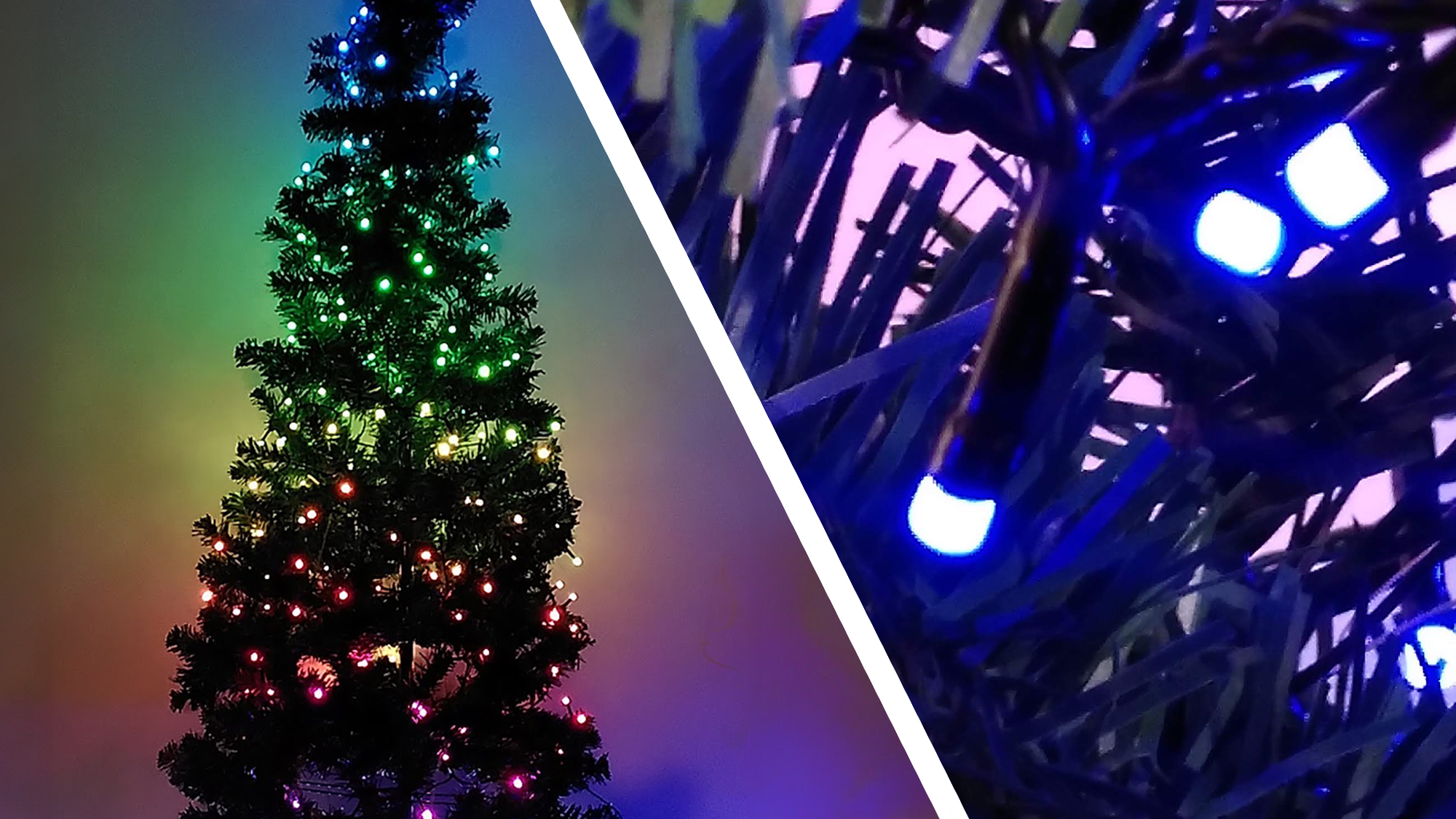
Twinkly Strings: two-minute review
The Twinkly Strings are smart LED string lights that you can use to decorate your Christmas tree or drape anywhere else in your home that's in need of a little festive cheer. Once you've mapped their position using the Twinkly app, you can set them to a solid color, take your pick from dozens of animations, or even use them to create a picture (either a preset from the app, or one of your own).
They come in four lengths: 26.2ft (100 LEDs), 65.6ft (250 LEDs), 105ft (400 LEDs), and 157.5ft (600 LEDs). I tested the 400 LED set, but 250 LEDs would have been ample for my 4ft tall Christmas tree. The LEDs arrive divided in two bundles as shown in the images below, so I hung one set around the tree and the other across the room.
I tested the Twinkly Strings RGB lights, but there's also an RGB+W version, which could be a good choice if you're planning to have the lights up all year round and would therefore enjoy more subtle white lighting at different color temperatures outside the festive period. The RGB lights are available with black or green cables, and if you opt for the RGB+W version, then you can also opt for clear cables that will be less obtrusive when installed more permanently.
The lights are positioned on springy, zig-zag-shaped wires, which are easy to hang and position. They don't become tangled as easily as conventional string lights; the shape of the wire makes them easy to bundle up once you're done, then secure each bundle with the Velcro tie included in the box. Although I had the black version, the wires weren't very visible when tucked among the tree branches.
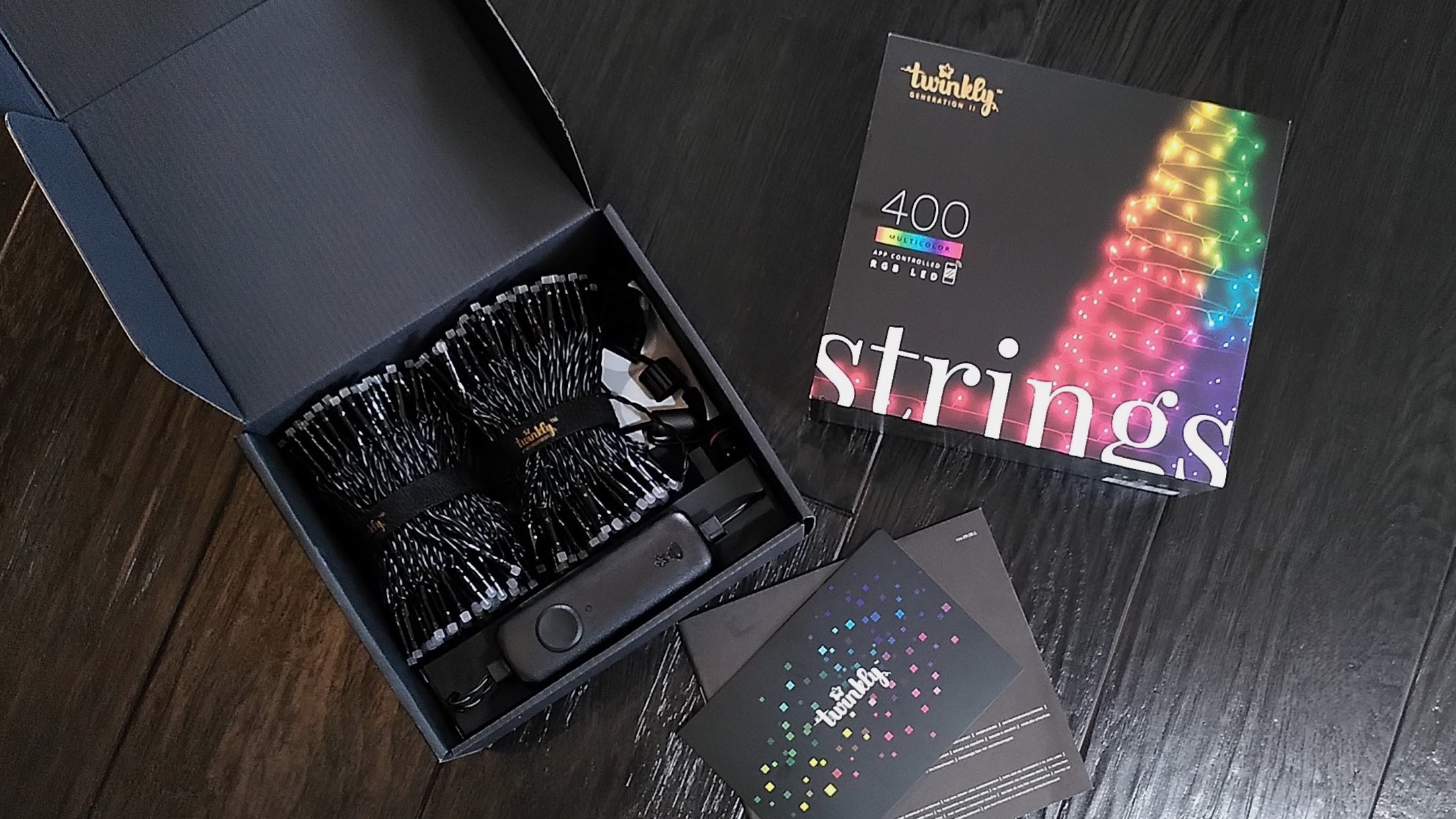
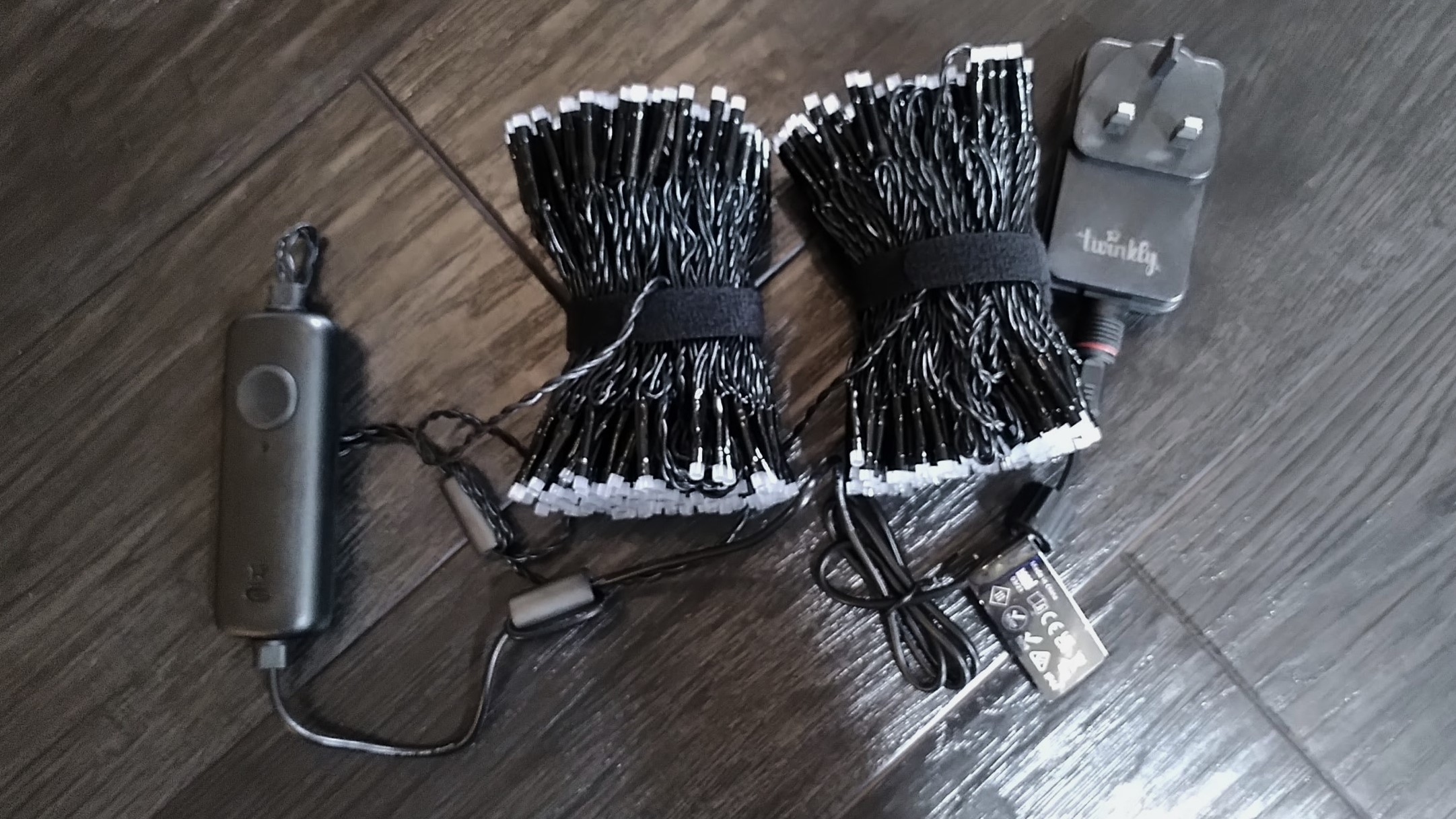
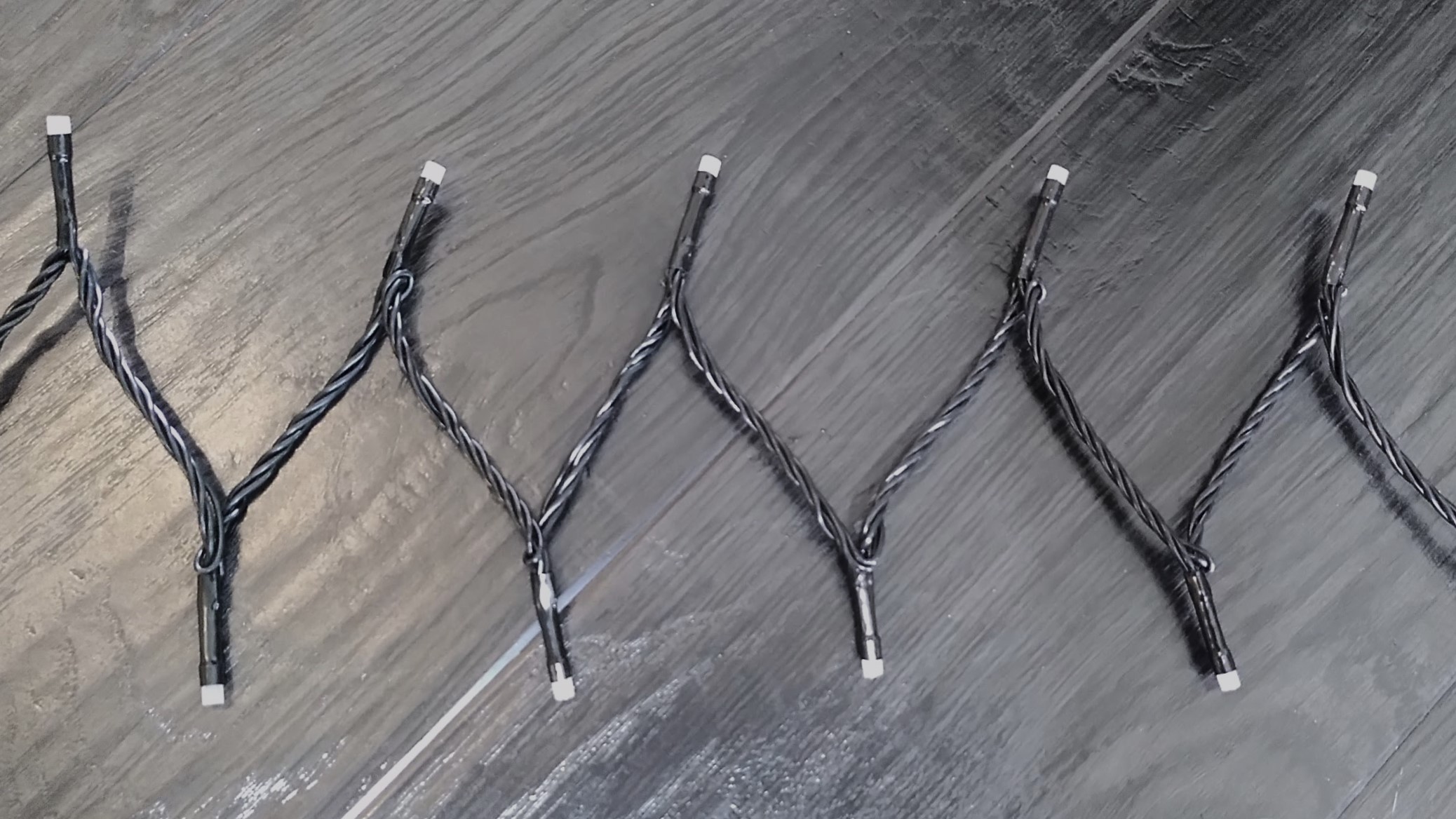
Once you've draped the Strings to your liking, open the Twinkly app on your phone (you'll need to create an account if you haven't used it before), switch on the lights and hold the button on the controller until the light turns turquoise. The app will then be able to find the lights, and you can connect them to your home Wi-Fi network. This worked perfectly during my tests, as it did with the Twinkly Line LED strip that I also tested recently.
When that's done and you've installed any necessary firmware updates as prompted, you'll be asked to use your camera to map their layout so that the software can assign the correct color to each bulb to create gradients, patterns and pictures. There are two ways to do this: Easy Mapping, which requires a simple straight-on view of your lights, works fine if they'll mostly be viewed from one angle; and Advanced Mapping, which uses images from multiple angles, and would be useful if you've positioned your Christmas tree in the center of the room or wrapped the lights around something outdoors.
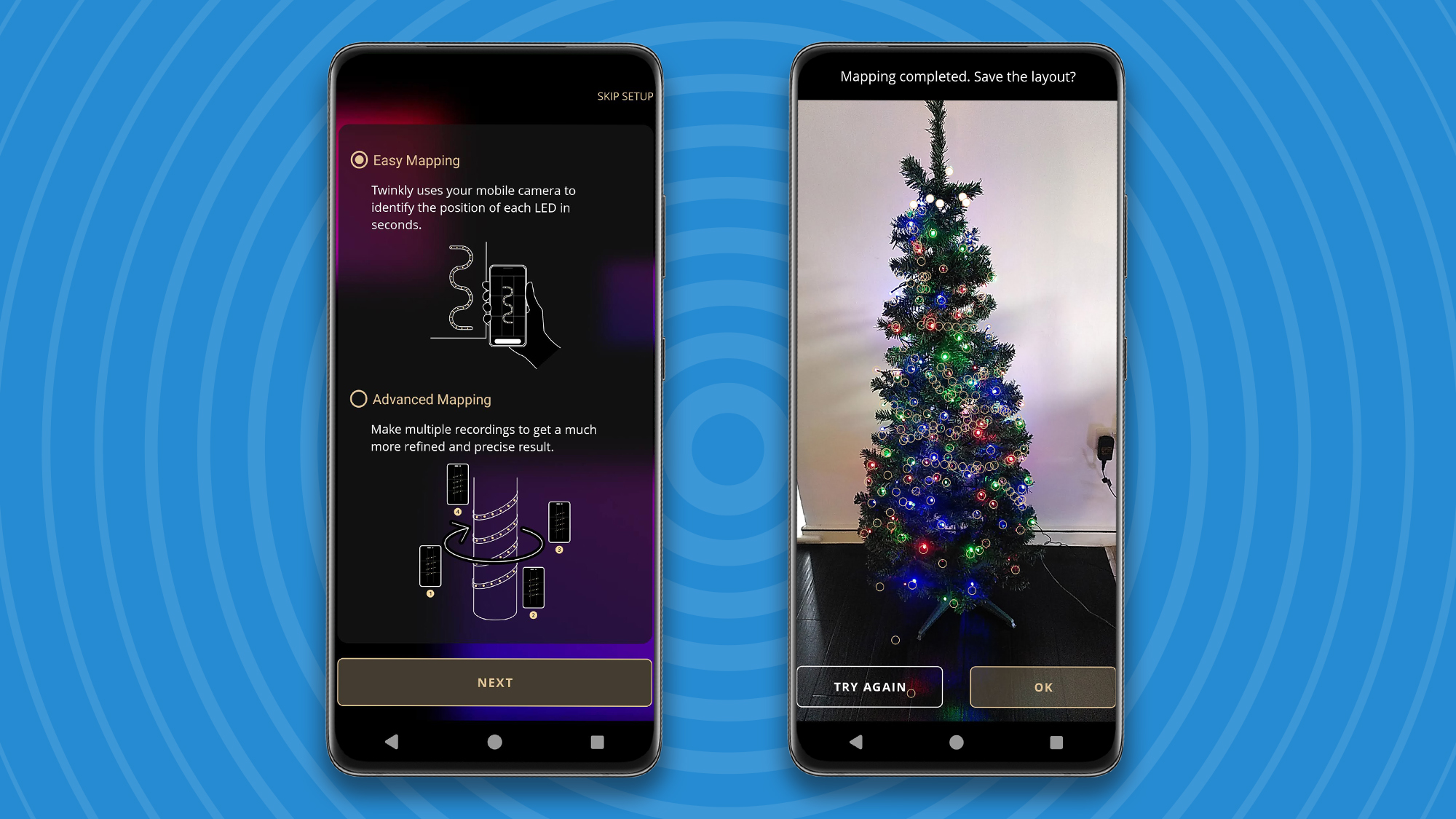
Simple mapping worked just fine for my tree, which was against a wall. Interestingly, the software was able to deduce where the lights on the back were positioned well enough to project a smooth gradient onto the wall, as you can see in this review's main image.
The various preset animations work well, and you can create a playlist that will store them on the Strings' in-line controller, so you don't have to open the app each time you want to change them. Pressing the button on the controller will cycle through your saved options, and holding it will switch them off.
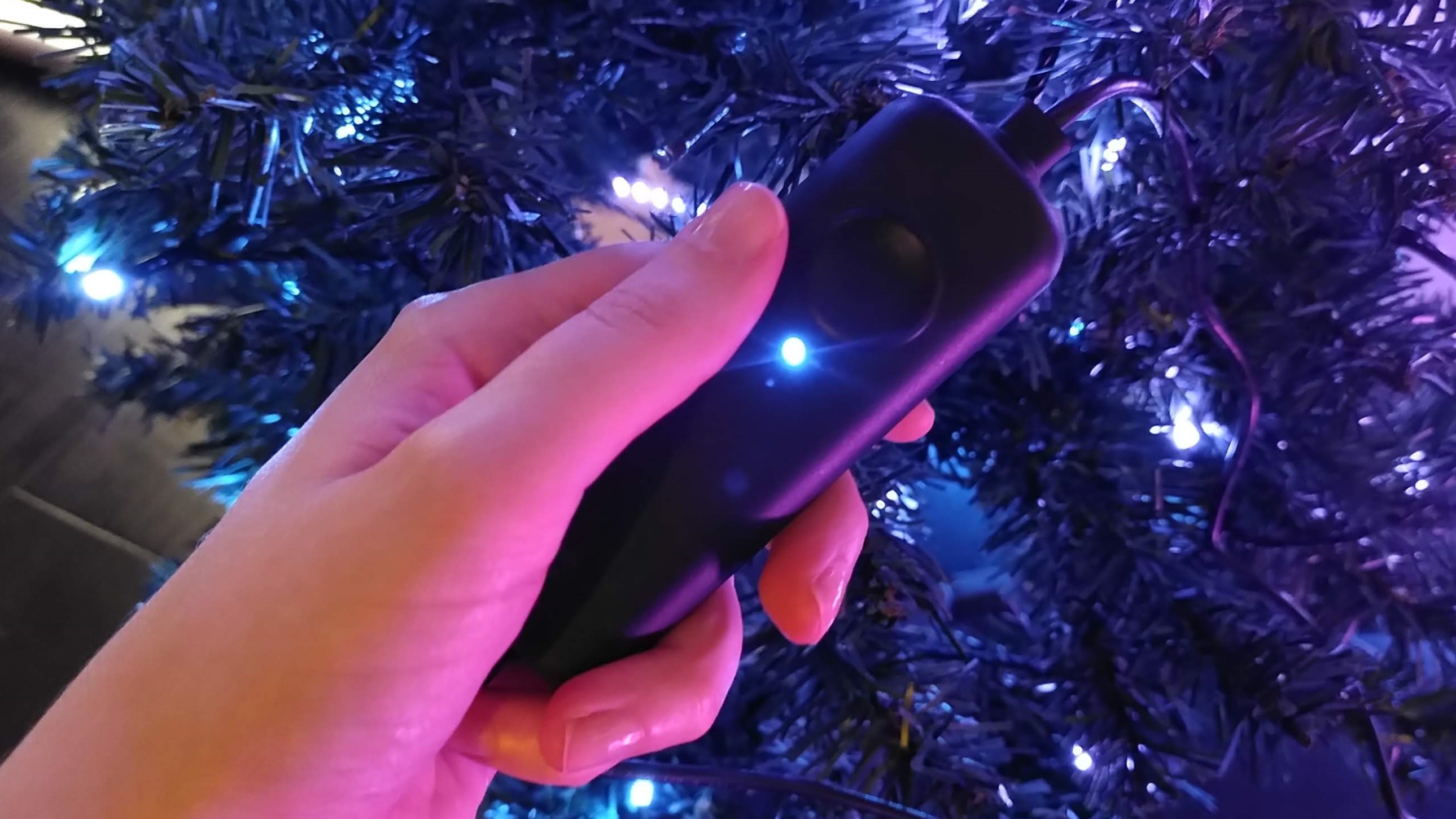
Some of the preset animations can be synced to music, as indicated by a musical note beside its name. This uses input from your phone, or from the Twinkly Music sound sensor dongle, which is available to buy separately. It would be nice if there was a microphone integrated into the controller, particularly since the Music dongle requires a USB power supply and the lights will already be using one of your electrical outlets.
I also experimented with using the Twinkly Strings to display a picture, but my tree was too small for this to work well. You could get the general idea, but there weren't enough lights visible at once to create a "canvas" with a sufficiently high resolution. It would be much more effective on a larger tree using the full complement of lights.
The Twinkly Strings work with all the major smart home platforms, and I had no issues at all connecting them to Google Home. The app found them immediately and added them to my living room. I was then able to use them like any other smart lights, and create automations that would turn on all the lights in the room at once with a voice command (such as "Merry Christmas"), or at a particular time.
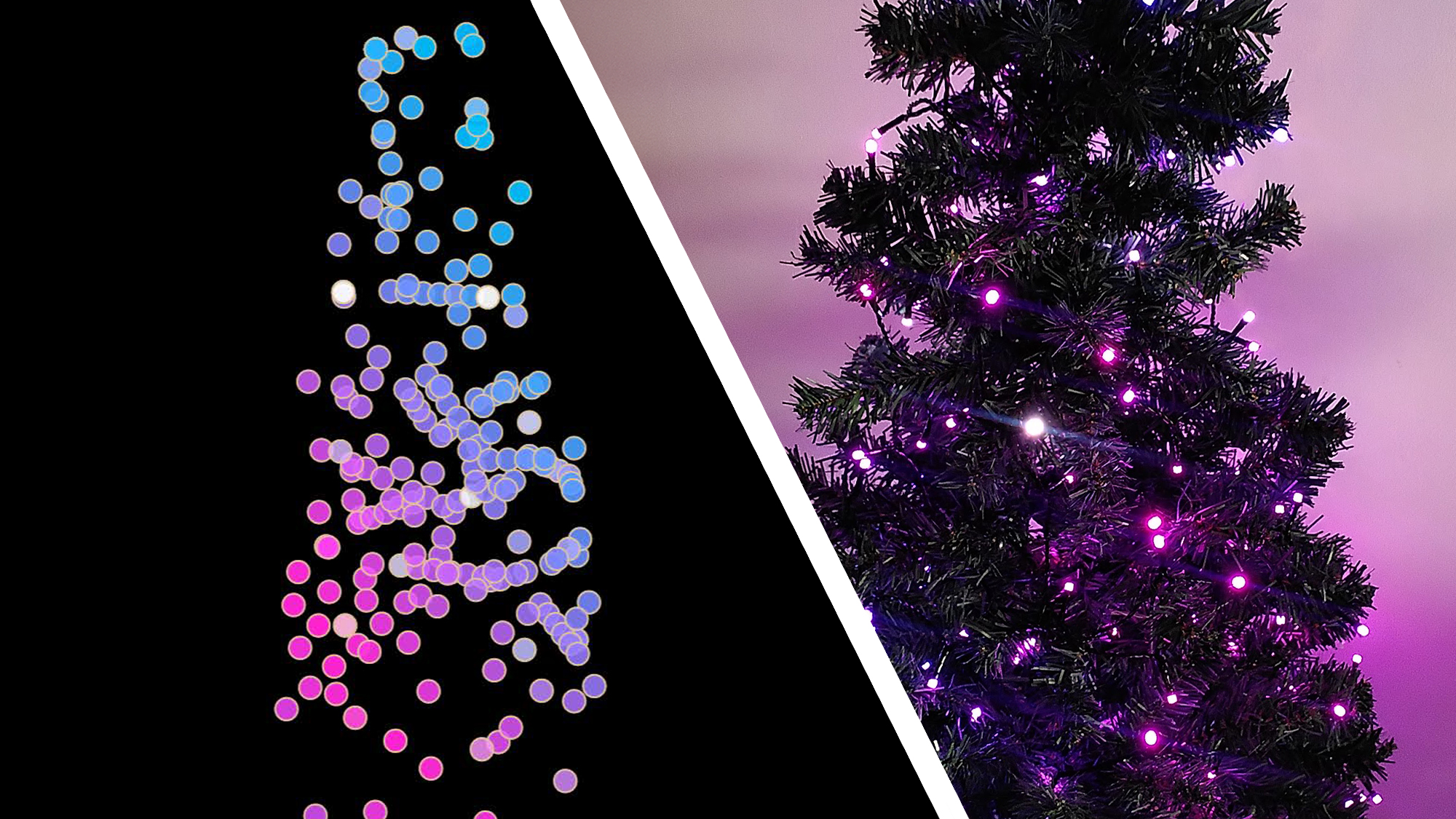
If you only have room for a smaller tree (under 4ft) then you may find that the smallest size (26.2ft) is too long, so you might prefer to opt for the shorter Twinkly Dots.
Covering extra large areas isn't a problem, though. While you can't add extensions to the Twinkly Strings, you can group multiple Twinkly products via the app and use them all together as a massive "canvas".
Twinkly Strings: price and availability
The Twinkly Strings are available globally direct from Twinkly, or from third-party retailers such as Amazon. The price depends on the length of the string, and whether you opt for the RGB or RGB+W lights.
These prices are around a third less than the equivalent Philips Hue White and Color Ambiance Festavia string lights.
Govee (Twinkly's main rival for the best smart lights on a budget) doesn't have a product that's an exact equivalent – its Christmas String Lights are more like the Twinkly Dots, with LED beads inside a flexible tube that can be wrapped around objects.
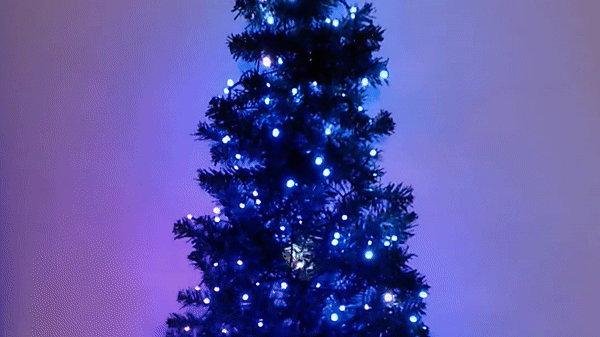
Twinkly Strings: specs
Should you buy the Twinkly Strings?
Buy it if
Don't buy it if
Twinkly Strings: also consider
Still not sold on the Twinkly Strings? Here are two other options you might want to consider.
How I tested the Twinkly Strings
To test the Twinkly Strings, I wound one half of the 105ft length around a 4ft artificial Christmas tree, and strung the other half across the length of my living room. I used the Twinkly app for Android to connect them to my home Wi-Fi network. and tested both the simple and advanced mapping options to address the LEDs.
I used them together with the Twinkly Line LED strip, connecting the two devices in the Twinkly app, where I could control them as a single device. I also connected them to my Google Home setup and created custom automations to control them.
Read more about how we test.
First reviewed September 2024







